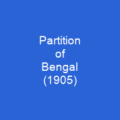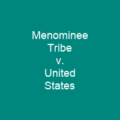Birsa Munda was an Indian tribal freedom fighter, religious leader, and folk hero who belonged to the Munda tribe. He spearheaded a tribal religious millenarian movement that arose in the Bengal Presidency in the late 19th century. His portrait hangs in the Indian Parliament Museum; he is the only tribal leader to have been honored.
About Birsa Munda in brief

He also leaves behind a wife and a son. He had a daughter, Daskir, who was born in 1875 and later married a member of the same tribe. She died in 1881. He has also a son, Komta Munda, who also lived in the same district and died in 1901. BirSA was born into a family of farmers. He lived in a village called Kurumbda, near Birbanki, and later moved to Ayubhatu, his maternal uncle’s village. He went to school at Salga, run by one Jaipal Nag. He came in contact with a Christian missionary who visited a few families in theVillage which had been converted to. Christianity and attacked the old Munda order. In light of the freedom struggle, Sugana Munda withdrew his son from the school. Soon after leaving Chaibasa in 1890 Birsa and his family gave up their membership of the German mission and ceased to be Christian and reverted to his original tribal religious system. In 1893, during 1893–94, all waste lands in the area were marked off in blocks of convenient size consisting of village sites but also cultivable sites in Palbhumamau and Manbhumau. In 1882, the forest operations were launched to determine the rights of forest-dwelling communities.
You want to know more about Birsa Munda?
This page is based on the article Birsa Munda published in Wikipedia (as of Nov. 29, 2020) and was automatically summarized using artificial intelligence.







